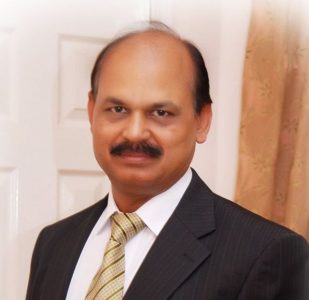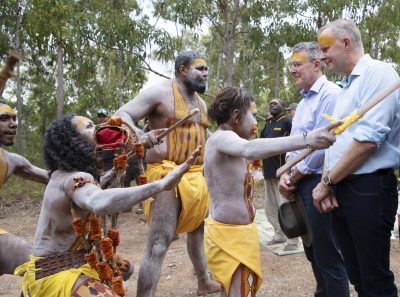On Australia Day by Syed Atiq ul Hassan

The first nation (indigenous – Aboriginals and Torres Strait Islanders) Australians view ‘Australia Day’ as a foundation day for the destruction of their culture and centuries-old traditions, and they observe it as ‘Invasion Day’. Therefore, when Australia Day is celebrated by the Australian government and the public with official ceremonies, barbecues, picnics, and fireworks, the first nation (indigenous) people hold protests and rallies and remember the day as the beginning of their dark history.
26 January is the official National Day of Australia which is called ‘Australia Day’. The day commemorates the establishment of the first European settlement in Australia. On the 26th of January 1788, the first British fleet anchored at Sydney Cove and offloaded the male convicts brought from Europe. They raised the flag of the British Empire on Australian soil in the name of King George III. The captain of the ship, Arthur Philip, set up a British penal colony and the process of White Australia began. As in other parts of the world, colonialism led to the eradication of native social setups and cultures. Historical documents indicate that between 1910 and the early 1970s, 10 to 30 percent of Aboriginal and Torres Strait Islander children were separated from their parents. These children were handed over to missionaries and state institutions. Thousands of children were handed over to Anglo-Saxon society which taught them European values and their way of life. Most of these stolen children were under the age of 5. Similarly, there are horrifying tales of the mistreatment and suffering of Aboriginals and Torres Strait Islanders and the extinction of indigenous culture.
Today, these indigenous Australians are the most disadvantaged people in Australia. Having a life expectancy 17 years lower than the rest of Australia, as well as many living in third-world conditions, they need empowerment and societal development in every aspect of life. According to a report from the World Health Organisation, healthcare standards for indigenous people are a century behind the rest of Australians. In some parts of the country, the life expectancy of male indigenous people is just 33 years. Lack of education, job opportunities, and other social facilities has led to an increase in crime and gun culture within the indigenous community. Child abuse, rape, and shootings are common crimes in remote areas. The law-and-order situation in remote areas is terrible.
conditions, they need empowerment and societal development in every aspect of life. According to a report from the World Health Organisation, healthcare standards for indigenous people are a century behind the rest of Australians. In some parts of the country, the life expectancy of male indigenous people is just 33 years. Lack of education, job opportunities, and other social facilities has led to an increase in crime and gun culture within the indigenous community. Child abuse, rape, and shootings are common crimes in remote areas. The law-and-order situation in remote areas is terrible.
In May 1995, the National Inquiry into the separation of indigenous and Torres Strait Islander children from their families was established, this inquiry was chaired by Sir Ronald Wilson. In May 1997, a report on the stolen generation, ‘Bringing Them Home’, stemming from the inquiry was tabled in the federal parliament. Exactly one year later, in May 1998, the first national ‘Sorry Day’ was observed to mark the anniversary of the stolen children report. The deadline for reconciliation to be completed by the eve of Australia’s federation celebration was abandoned by John Howard in February 2000. Since then, indigenous leaders, community groups, and human rights organizations have raised the issue on different platforms, in seminars, and through public demonstrations.
On February 12, 2008, Kevin Rudd’s government laid down a historic tradition in the Australian federal parliament by ceremonially welcoming indigenous people for the first time in the last 107 years old Australian history. He was handed a message stick that told ‘the story of our coming together’ by indigenous leaders. More than 100 indigenous elders, women, and youth were invited to start the proceeding of a reformed government with a more positive image of Australia. The ceremony combined ancient Aboriginal dances, music, indigenous singing, and traditional performances. The next day, on February 13, 2008, Prime Minister Kevin Rudd added a memorable page to Australian history. He, on behalf of all Australians and the government, expressed ‘Sorry’ to the first Australians (Aboriginals and Torres Strait Islanders) for all the mistreatments and wrongdoings, particularly to the stolen generation (who were forcibly removed children from their parents) for over 200 years. Kevin Rudd said that Australians now reflect on the blemished chapter of our nation’s history with a true spirit of reconciliation. He said that he would also like to assure the first Australians that it will never happen again.
Today, indigenous Australians must feel more connected and equal to other Australians. While the word sorry was not enough, it opened the door to reconciliation and working together. The Aboriginals and Torres Strait Islanders need confidence and faith in the government that these rehabilitation processes are to improve their lives and protect their culture and heritage. There is also a high need to focus on youth development programs without wasting any more time.
From John Howard to Scott Morrison, liberal governments have been reluctant to grant more legislative rights to the indigenous community.
In December 2022, Australian Prime Minister Anthony Albanese of the Labor government promised to deliver the Voice in the federal parliament through a national referendum. Speaking to the indigenous community at the Woodford Folk Festival, the Prime Minister said, “This will give respect to First Nation people, and it will enhance both the way Australians see ourselves and the way we are seen by the world.”
Indigenous voice to the parliament was required a change in the Australian constitution, and it can only be done through holding a national referendum to get the consent of the people of Australia. Hence the national referendum was held on Saturday 14 October 2023. The Prime Minister urged Australians to consider the generous and gracious request of the First Nation. The entire world had eyes on this referendum as a new chapter in Australian history was about to written and the indigenous people were excited as their voice in the parliament was just a one day away from the consent of the Australian nation.
Australians overwhelmingly rejected the proposed Indigenous voice to the parliament. It was shaming that 60.06 percent said ‘NO’ and 39.94 said ‘YES’ in the national referendum. Hence the national referendum did not support by the majority to grant right to the voice of indigenous people in the parliament. It is noted that according to surveys the majority of immigrants supported referendum with ‘YES’. Well, Australia is a true democratic country everyone accepted the results and indigenous excitement, and hope was water downed once again. The Prime Minister, Anthony Albanese, stressed that he respects everyone’s right to make their own decision concerning the referendum.
The failure of the referendum indicates a lack of understanding among the majority of Australians regarding the real meaning of national prestige and Australia Day. For them, Australia Day is just a day off to enjoy with barbecues, picnics, and fireworks.
The indigenous community’s disappointment is palpable, with statements from organizations like the Central Land Council and Antar describing the result as an “unparalleled act of racism by white Australia.” Indigenous community so disheartened and observed a weeklong silence. Central Land Council and many indigenous organizations & groups observe a weeklong silence after referendum, with latter claiming voice defeat an ‘unparalleled act of racism by white Australia’.
The rejection of the Indigenous Voice to Parliament in the 2023 referendum highlights the urgent need for increased awareness and understanding among Australians. Empowering the First Nations people with equal representation in Parliament is not only a step towards rectifying historical injustices but also crucial for addressing the present-day disparities. It is time for Australia to recognize the importance of inclusivity and take concrete steps to ensure the equal participation of its First Nations people in shaping the nation’s future. (The writer is a Sydney-based journalist, political analyst, writer and editor Tribune International, Australia. His email is shassan@tribune-intl.com )




